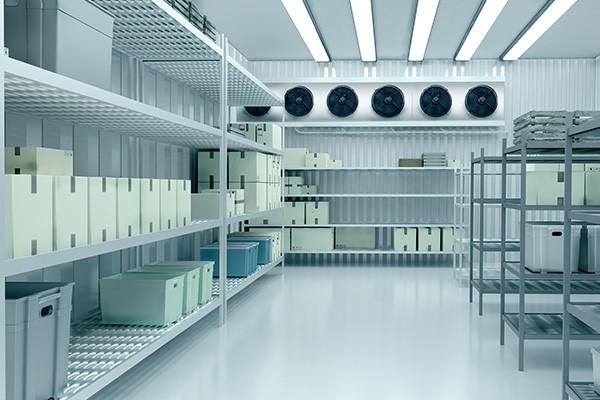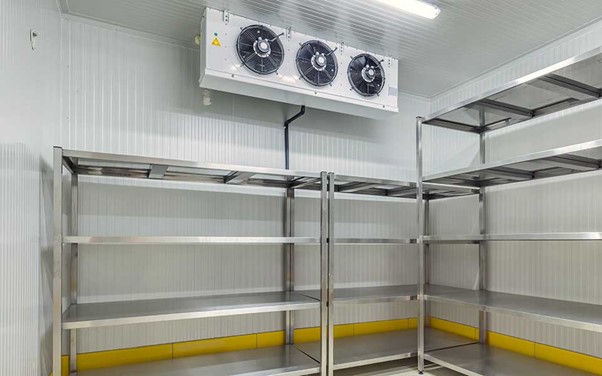Challenges And Solutions in Maintaining Industrial Refrigeration Systems
Let's start with a puzzle, shall we? Imagine, in front of you lies an intricate piece of machinery, critically responsible for smooth operations, yet extremely sensitive to changes in conditions and settings. Yes, we're delving into the intriguing realm of industrial refrigeration systems, where the chill factor can also make one sweat! You might wonder - Why focus on industrial refrigeration systems? What makes them so vital and, paradoxically, demanding?
Simply put, the industrial refrigerator is one unsung hero in many businesses - be it food processing or medical facilities. They're the silent guardians ensuring optimal conditions for delicate, perishable goods. But as any mechanical system, they can falter under certain conditions or due to lack of regular maintenance. One unscheduled breakdown can lead to substantial monetary losses or, worse still, health and safety breaches. So, what are the prevalent challenges and how can we effectively tackle them? In this blog post, we're going to encapsulate these concerns, and most importantly, their solutions.
Why Regular Maintenance Matters?
A popular adage goes, "Prevention is better than cure." This is particularly applicable to industrial refrigeration systems, where unforeseen hiccups can be disastrous. Regular maintenance not only helps avert major breakdowns but also improves the system's efficiency, ensuring a longer lifespan. Comprehensive maintenance includes routine checks, cleaning, change of filters and refrigerants, as well as inspecting for leaks or corrosion.
However, ensuring regular, meticulous maintenance can itself be a daunting task. Training staff, drawing a schedule, keeping track of services, and finding reliable maintenance services can all add up to the challenges. Moreover, smaller business firms may find it economically burdensome.
The Refrigerant Conundrum
Industrial refrigeration systems rely heavily on refrigerants, which are often chemical substances with significant environmental implications. Stricter environmental regulations are pushing businesses towards eco-friendly options.
However, transitioning to greener alternatives brings its own set of challenges. Selecting the right kind of refrigerant considering its compatibility with the existing system, the cost of the refrigerant and its impact on system efficiency are key questions to be addressed.
Upgrading to Latest Technological Innovations
Technological innovations are constantly reshaping industrial refrigeration systems. Automation and integrated systems can drastically cut down on manual labor, minimizing human errors and enhancing system efficiency. However, upgrading to these latest trends requires substantial investment and training for effective utilization.
The Energy Efficiency Puzzle
Energy consumption is a critical aspect of industrial refrigeration systems. About half of a facility's energy budget is consumed by these systems. Though energy-efficient models are increasingly becoming available, their initial cost may be prohibitive for some businesses, leading to a reluctance to upgrade.
The Challenge of Skilled Labor
The maintenance and operation of industrial refrigeration systems require skilled labor. There is a need for intensive training programs to ensure the workforce is equipped to handle these systems properly and safely. However, a dearth of properly trained personnel can pose a significant challenge.
Keeping Up with Regulatory Compliance
Regulations governing the use and maintenance of industrial refrigeration systems are stringent and ever-evolving. Staying updated with the latest regulations, acquiring necessary certifications, and ensuring compliance can be a complex task, especially for smaller businesses lacking a dedicated, knowledgeable team.
Conclusion: Learning to Embrace the Chill
In conclusion, maintaining industrial refrigeration systems is no easy task. It is a complex puzzle, made up of several factors interplaying with each other - regular maintenance, eco-friendly refrigerants, keeping up with technological advances, energy efficiency, skilled workforce, and regulatory compliance, to name a few. It requires strategic planning, consistent investment in maintenance and upgrades, and a commitment to eco-friendly practices. Moreover, training the workforce is a critical link in the chain.
While these challenges may seem daunting, they are far from insurmountable. The key lies in proactively addressing these issues, devising a comprehensive maintenance schedule, staying abreast of evolving regulations, and investing in the training of personnel. As industrial refrigeration systems continue to play a critical role in various industries, businesses must learn to embrace the 'chill,' and ensure their upkeep remains a priority.









No comments: